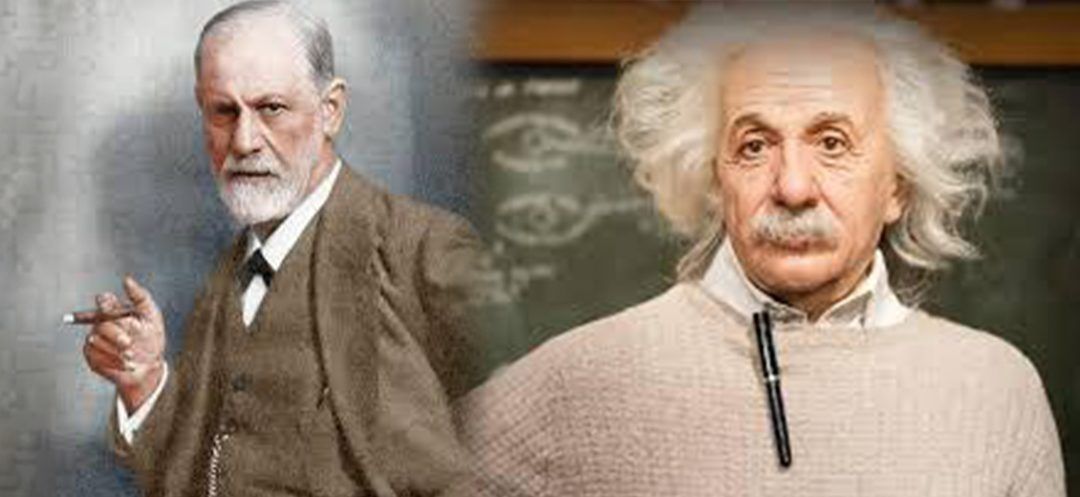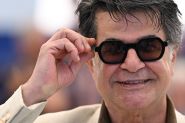
Every week, we invite you to explore a striking theme from a great psychoanalyst to reveal its depth and richness. These lapidary, often provocative formulas open up new perspectives on the intricacies of the human psyche. By deciphering these quotes with rigor and pedagogy, we invite you on a fascinating journey to the heart of psychoanalytic thought to better understand our desires, anxieties and relationships with others. Ready to dive into the deep waters of the unconscious?
In 1932, troubled by the futility of efforts to ease conflicts between European states, Albert Einstein decided to address a letter to Sigmund Freud in which he raised crucial questions: Is there a way to free humanity from the scourge of war, which has become even more threatening with technological progress? What are these powerful psychological forces that hinder peace? Can we put an end to the power-hungry appetites of ruling classes and the economic interests of certain powerful groups? The famous physicist asks Freud, whom he considers “the great expert on human instincts,” to shed more light on the “most secret” aspect of the human psyche to illuminate the roots of human belligerence in light of psychoanalytic discoveries.
Freud responds by presenting his latest theory of drives, a cornerstone for understanding the depths of the psyche. He highlights the constant struggle between the forces of Eros, energies of connection that drive towards union and preservation of life, and those of Thanatos, which work towards disintegration and a return to an inorganic state. These seemingly contradictory forces intermingle within each individual, and their perpetual conflict is at the very heart of war, both individual and collective, where Thanatos appears triumphant in its paroxysmal crystallization.
Freud delves deeper into his reflection: human motives are so complex that life and death drives are not distinct from each other. On the contrary, they are intertwined, which is why wars persist despite their devastating consequences. For those who are dogmatic, wars can be perceived as means to preserve life (of a people or an ideology), thus illustrating the fundamental ambivalence and contradictions of the human psyche. As paradoxical as it may seem, both life and death drives are equally indispensable since “it is from their combined or antagonistic action that life phenomena emerge,” in the sense that they are merely “the theoretical transposition of the universally known antagonism of love and hatred.”
Melanie Klein made significant contributions to this reflection. By exploring the primitive mechanisms of infantile psyche, the psychoanalyst highlights the universality of aggressiveness and destructive drives. These are present in the infant from the earliest months of life, followed by, around the sixth month, reparative drives stemming from the feeling of guilt, as previously explained. In light of this theory, war can be seen as a massive regression to the early months of existence with the predominance of projecting persecutory aspects onto a dehumanized enemy.
Donald W. Winnicott further illuminates the inextricability of drives by emphasizing the potentially constructive role of aggression when well-contained. This perspective opens up avenues for thinking about transforming destructive drives into creative forces within individual and collective relationships. The mechanism of sublimation finds a new light here: how can nations channel their aggressive energies towards non-violent and socially valued goals?
Our reflection can also build on Wilfred Bion’s theory of links. His contribution to fundamental processes in individuals enriches our reflection and search for solutions. This theory of links clarifies what is at play in the infant as well as later in the adult. It highlights the importance of the L link (love), the H link (hate), and K link (knowledge), which are as intertwined as life and death drives. They are expressed in interpersonal and intergroup relationships. When political, economic, and sociocultural interactions are weakened, attacks on these links, in times of war, for example, significantly undermine them in the face of destructive drives, obstructing the union of the K link (knowledge, curiosity) with the L link (love), which are essential for implementing relationships of mutual aid, empathy, and affection. There is only then the barbaric and blind violence that overwhelms everything, destroying theoretical, practical, and material constructions, as well as human lives, leaving only ruin and despair in its wake.
Finally, for Lacan, war is a desperate attempt to symbolize the unspeakable trauma whose consequences endure, a compulsive and cruel repetition aiming in vain to master what eludes language: it can only end in failure.
These perspectives enrich our understanding of this intimate and universal conflict between Eros and Thanatos. They resonate with particular acuity in the face of the conflicts tearing apart our world, especially in our immediate vicinity, where bloody and disastrous madness seems to have taken hold of beings we struggle to perceive as human.
Now more than ever, we need clear voices, calls for reflection, wisdom, and dialogue. The intuitions of Einstein and Freud, the contributions of their successors, are beacons in the night, urging us not to let Thanatos prevail. These psychoanalytic views also remind us that peace, whether individual or collective, is not simply the absence of war but an ongoing active process of sublimating destructive drives and reinforcing affective, political, and sociocultural bonds between individuals and peoples. In our world where the threats of conflict are omnipresent, fueled by various extremisms, psychoanalytic reflection remains crucial for thinking about and building more peaceful human communities.
Regarding the current conflict at our doorstep, it is vital that voices calling for the recognition and elaboration of historical-political traumas, both at the individual and collective levels, are heard. This process is essential if we wish to build a calmer shared existence. It requires arduous work of memory and dialogue that goes far beyond traditional diplomatic negotiations.
Read more





Comments